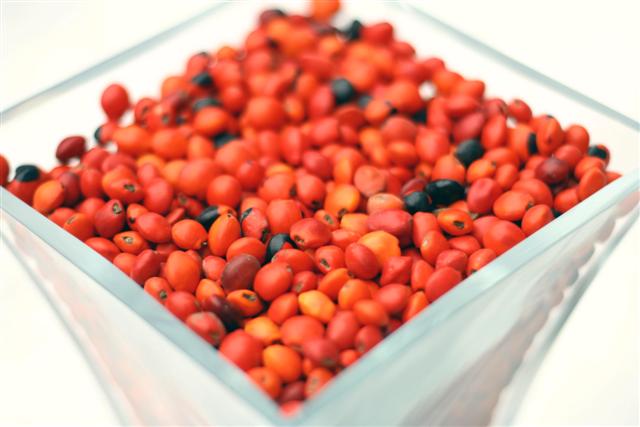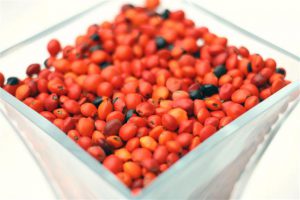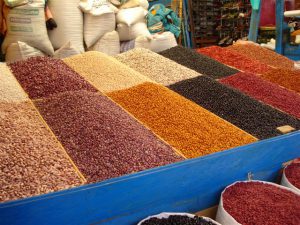
If you’re a vegetarian or vegan, you probably have heard this question a million times: “Where do you get your protein?” There are plenty of imitation meat products out there designed to look and taste like red meat, chicken and fish. The trouble with these products is many of them contain additives and preservatives that aren’t the best for your health. This article will help you identify healthy sources of protein.
What is Protein and Why Does My Body Need It?
Protein is one of three essential macronutrients, the other two being carbohydrate and fat. Protein maintains normal body growth and muscle mass and is important for a stable immune system. It is also important for the proper functioning of the heart and respiratory system.
How Much Protein Should I Consume Each Day?
Ideally, 10 to 15 percent of your daily caloric intake should come from protein. This means if you eat 2,000 calories per day, you should consume 50 grams of protein. Another way to calculate how much protein you need is to take your weight, divide it by two and subtract ten. So if you weigh 125 pounds, half that is 62.5. Subtract ten and you need roughly 52 grams of protein per day.
Healthy Vegetarian Sources of Protein
Grains
Grains are not only healthy; they’re budget-friendly too! Let’s take a look at four common grains that balance the vegetarian diet.
Quinoa
Quinoa is a healthy, gluten-free grain that’s an excellent source of vegetarian protein. This nutty-flavored grain contains a whopping 18 grams of protein per cup. It makes a great hot breakfast cereal or dinner side dish.
Brown Rice
Brown rice makes a great protein-rich side dish and can be combined with beans for a complete protein. At nearly 7 grams per cup, brown rice is an ideal source of protein for vegetarians.
Millet
Another good source of gluten-free vegetarian protein is millet. This cereal grain was used to make bread before wheat and is a staple grain in many countries. It can be eaten for breakfast, lunch or as a dinner side dish and contains 11 grams of protein per cup.
Wheat
Wheat is a common grain used in cereals, breads, pastas and other common meal items. A cup of whole-wheat past contains approximately 5-10 grams of protein (depending on brand) and a slice of whole-wheat breads offers 5 grams. Just remember wheat contains gluten and there are plenty of gluten-free grains available above.
Beans
The rich flavor and versatility of beans make them a primary meat substitute for vegetarians. Whether you’re eating red, white, black, pinto, kidney or cranberry beans, you’ll get anywhere from 14-21 grams of protein per cup.
To make this vegetarian option the healthiest, choose beans in a bag, instead of in a can. This way you can ensure a preservative and additive-free meal.
For a tasty, South Asian take on beans, try this delicious recipe for quanti, a traditional Nepalese dish.
Lentils
Lentils are delicious and easy to make. Boil them as a protein-rich side dish or serve them in some home-made lentil soup. Just one cup of lentils contains a whopping 18 grams of protein!
Nuts and Seeds
Nuts and sees are another common staple of the vegetarian diet. They’re a healthy source of protein and go great in a salad, a bowl of cereal or as an on-the-go snack. Peanuts contain 27 grams of protein per cup while walnuts, cashews and pecans offer about 25. Sunflower seeds, pumpkin and squash seeds contain nearly 33 grams of protein per cup.
Nut Butters
In addition to nuts and seeds, nut butters are another healthy source of vegetarian protein. Peanut butter and almond butter are the most commonly-used types of nut butters. You can also add some variety to your diet by choosing cashew, macadamia, pecan or walnut butter. Spread nut butter on toast, use as a vegetable dip or pair with your favorite preserves for a protein-rich sandwich!
Seitan
Seitan is customarily used in Asian dishes and is also referred to as “wheat meat”. For soy-sensitive individuals, seitan is a preferred meat substitute and contains 31 grams of protein per 4 ounce serving.
Dairy Sources of Protein
Another source of healthy vegetarian protein can be found in the dairy section of your favorite grocery store. A glass of whole milk contains 8 grams of protein, hard cheese contains 10 grams, cottage cheese 15 grams and yogurt 8-12. Also, if you’re watching your weight, you’ll be glad to learn that cheese is a diet-friendly food!
Protein-Rich Vegetables and Fruit
You may not think you can look to the produce section for protein but you can. Certain fruits and vegetables contain a favorable amount of protein.
As far as vegetables go, green peas take the gold by packing 5.9 grams of protein per serving. Asparagus, broccoli and Brussels sprouts offer 3 grams per cup.
To get your protein from fruit, try dipping into the exotic. Taramins and guavas contain 3 grams of protein while avocados and pomegranates offer 2 grams per serving.
Whether you’re just embarking on a vegetarian diet or have been following one for years, these healthy sources of vegetarian protein can give the energy, vitamins and minerals you need to keep you feeling your best.




Also, vegetarian protein is the best protein for human beings. T.Colin Campbell in the book “The China Study” shows that vegetarian proteins are protective while animal protein is not healthy.
The Western society promotes heavy use of animal protein and this has led to heart disease, diabetes, cancer and several other diseases. So you can reduce your risk of these diseases by adopting a vegan diet with protein from plants.